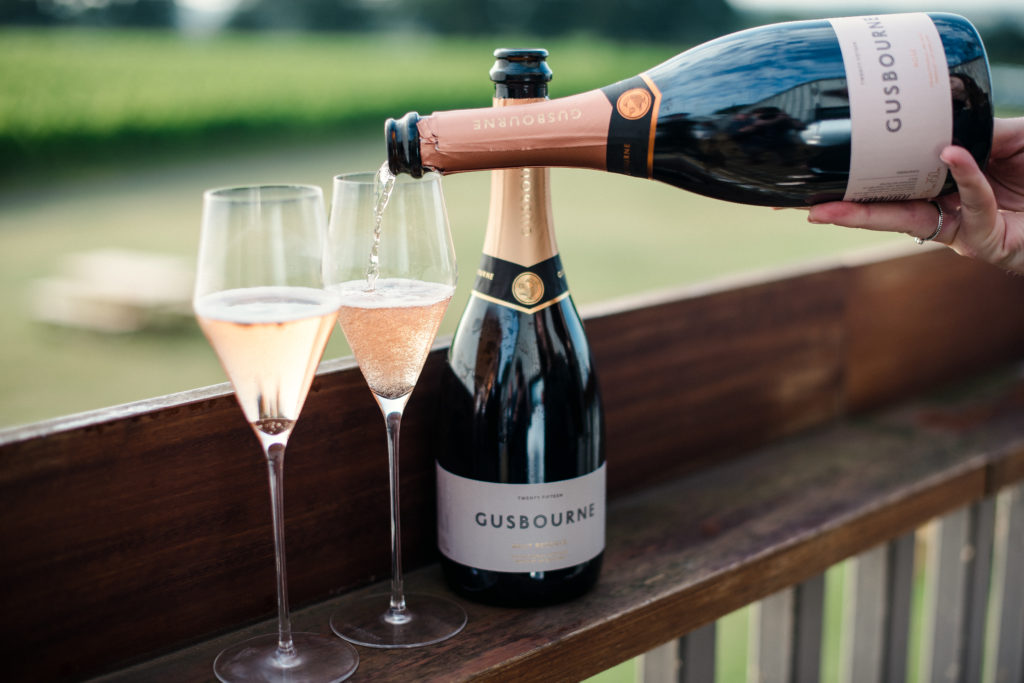Great British Bubbles
The rise of English sparkling wine.

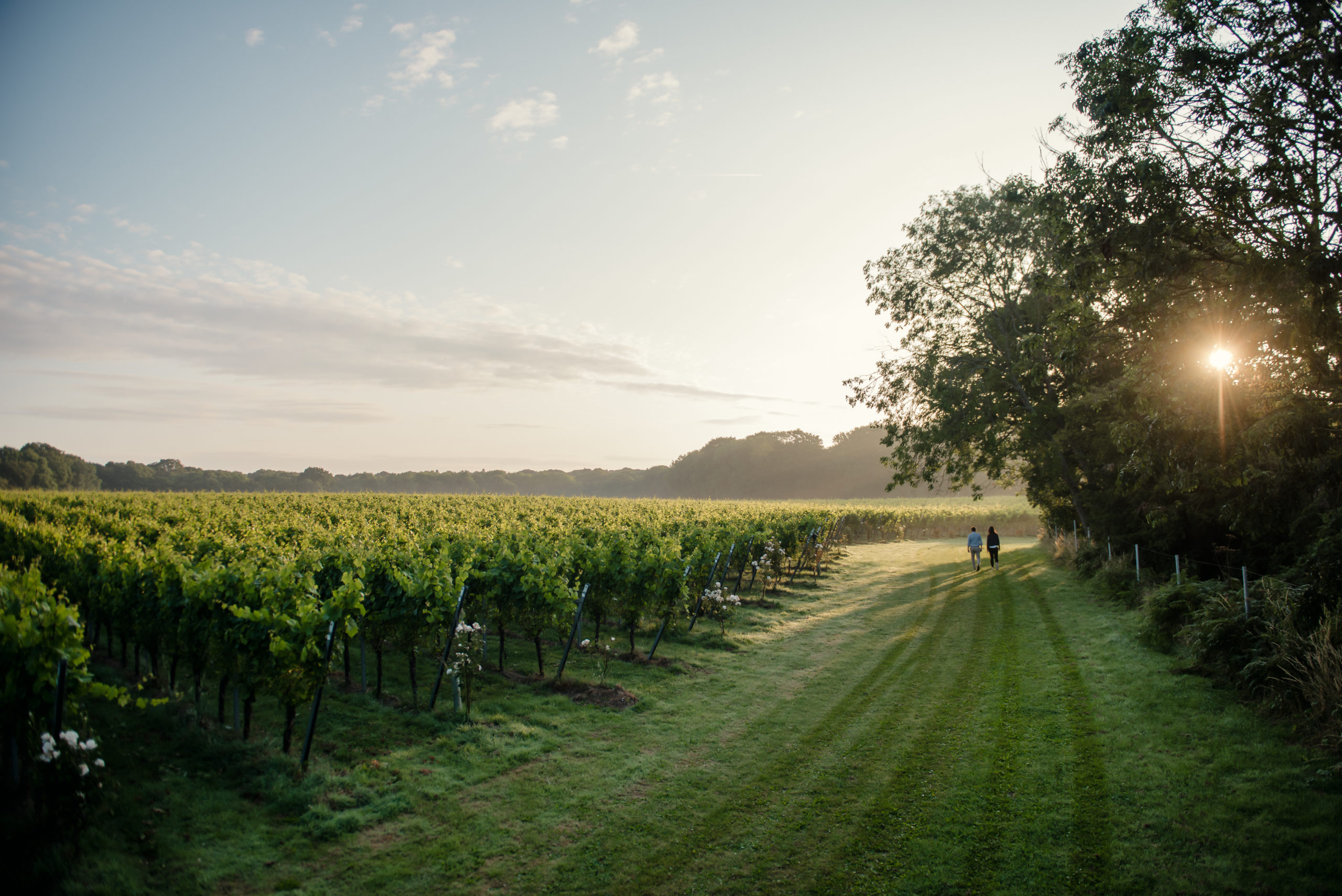
There’s some dispute as to whether the English or French put the bubble into wine. Champagne was discovered by chance by Dom Perignon in 1693 and celebrated with the famous quote ‘come quickly I am tasting the stars’, however, it’s also claimed that a 17th century cider maker from Gloucester first devised the fermentation method which gives champagne its fizz. If we did invent the bubble, it’s taken another 300 years or so for English wines to really sparkle.
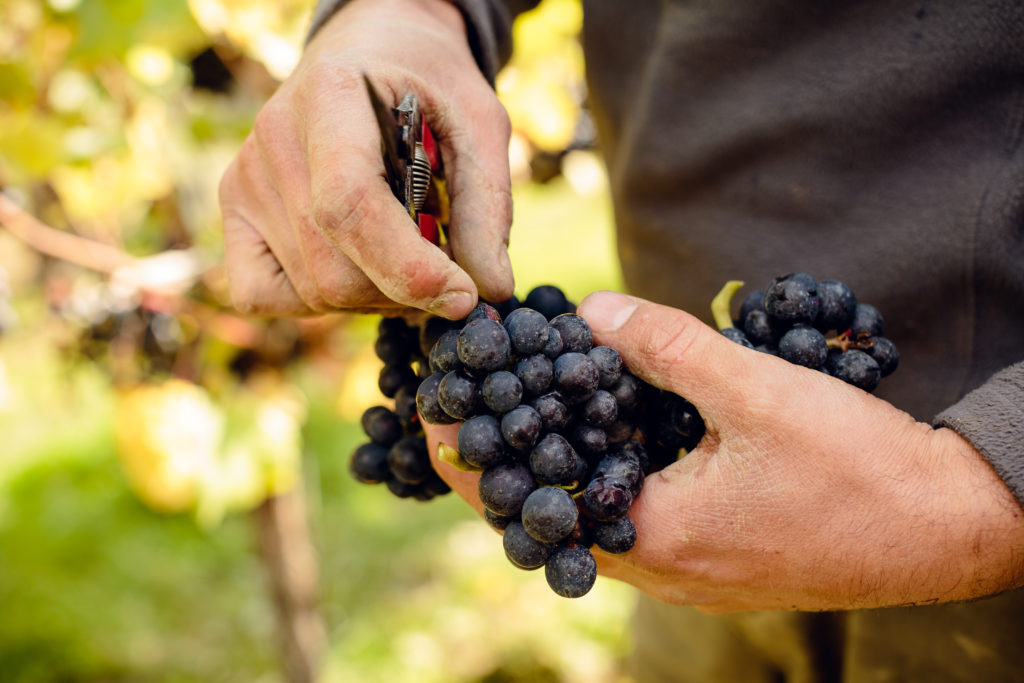
With climate change favouring the English terroir with warmer temperatures (southern wine regions of England are only 200 miles from Champagne), there has been a steady increase in high-quality wine production that has seen French wine tasters choosing English bubbles over Premier Cru Champagnes. “Britain now punches well above its weight in wine production with the industry moving from, ‘plucky outsider status’ to champagne beating cellar essentials, claiming a record number of international trophies along the way. England is fizzing, and the world is taking notice.” Zeren Wilson, Christies.
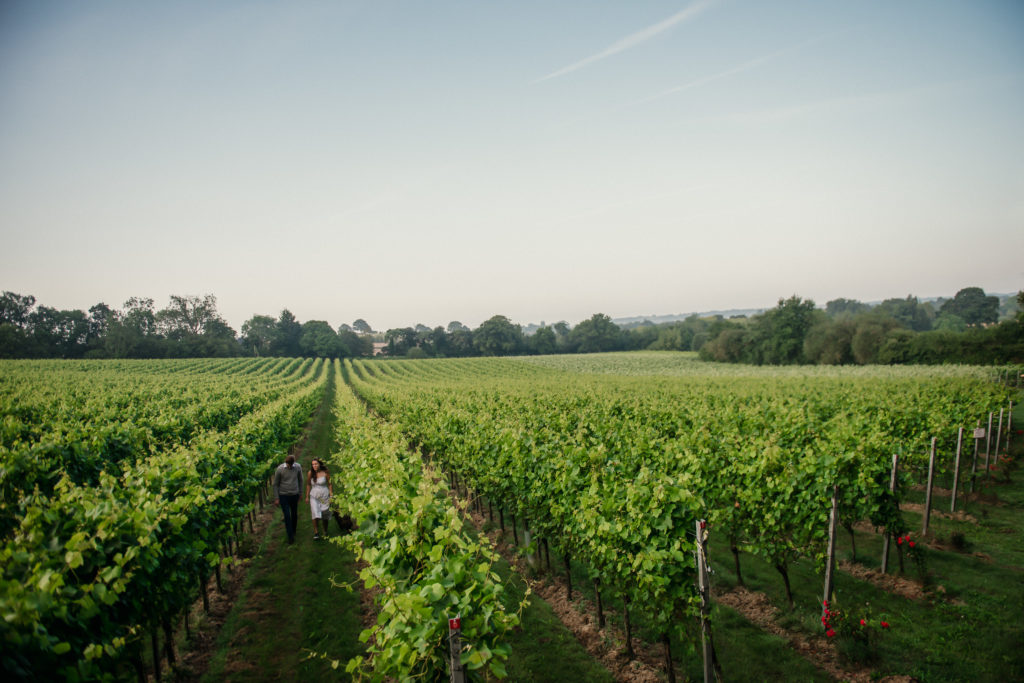
With over 8.7 million vines planted between 2017 – 2021 alone, the English wine industry is one of the fastest expanding wine regions in the world, with some of the French champagne houses such as Taittinger and Pommery now investing in English soil. Yet as Jonathan White, from Gusbourne Estate notes “as little as 10 years ago, there were only two or three wines which might have been known outside the UK or recognised by wine critics. Today there’s a collective of maybe 10 to 20 producers that are making really excellent wines.”
English winemakers are not however, trying to produce a champagne analogue. We chatted to Jon Pollard, Chief Vineyard Manager and Charlie Holland, Head Winemaker at Gusbourne Estate – whose English sparkling wines have won over 200 awards at international competitions, are stocked at many of the world’s leading restaurants and as of this summer, can be sipped in a hot tub or decked bar at the finest boutique camping events in the UK – as Yurtel’s partner for the British festival season.
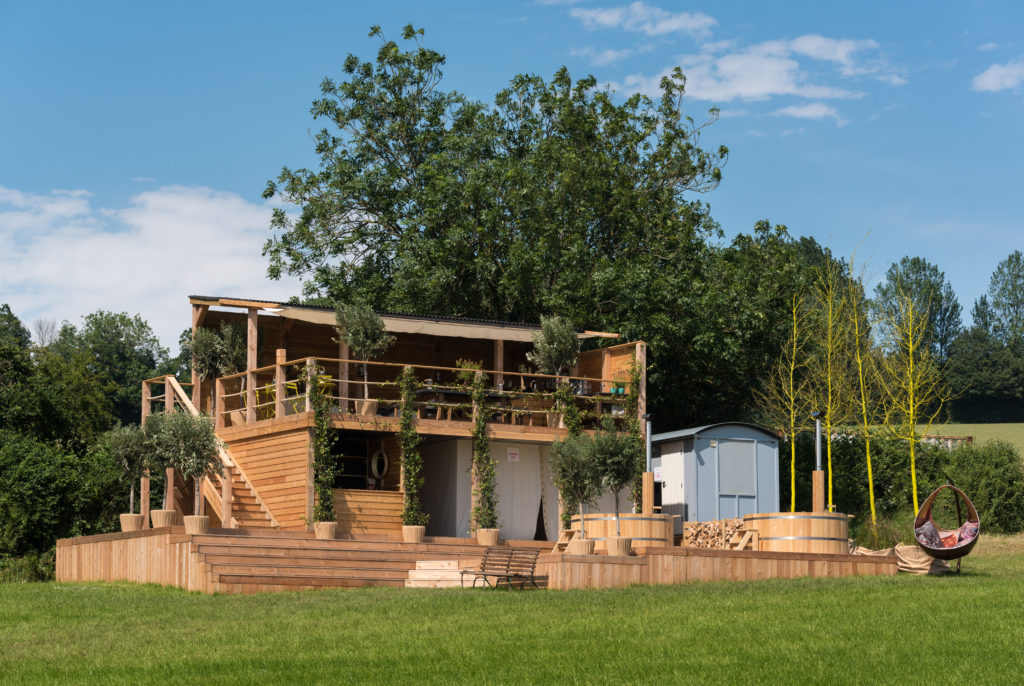
“Our English vineyards are the core of everything we do at Gusbourne,” explains Charlie, “it’s our philosophy, our values, our history, our future. And the key to ensuring the quality of our grapes – and our wines – is to grow them ourselves right here in the Kent countryside and at our site near Goodwood in West Sussex.” When their founder, Andrew Weeber, planted the first vines in 2004, they used predominantly Burgundian clones to grow their Chardonnay, Pinot Noir and Pinot Meunier grapes – the three classic sparkling wine varieties. Charlie points out that “although the yields are smaller, the fruit is riper and intensely flavourful, a product of the distinct terroir and exceptionally mild microclimates.”
Climate is, however, only one part of the puzzle. The local Wealdon clay-loam soil in their Kent vineyards is similar to Burgundy whilst the chalk in their Sussex soil is similar to France’s Champagne region. Combine that with an exceptionally warm, dry maritime climate and proximity to the sea and you get Gusbourne’s distinctive salty tang, “Champagnes tend to have that sort of lovely, toasty richness … English wines have a much more sort of steely, citrus backbone to them.” explains Jon.
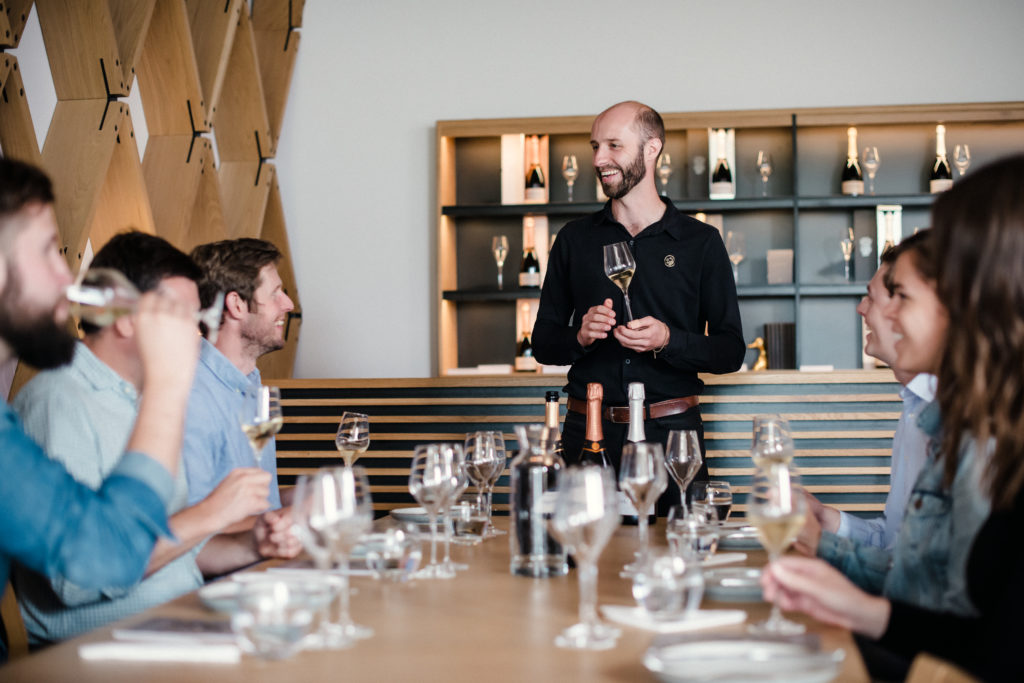
He also says this distinctive profile is down to Britain’s longer growing season, “We’ve got this ability to have a slow ripening season, partly because of the slightly lower temperatures in this country and the lower sunlight levels. But that really allows the flavour profiles within the fruit to build up”. Master of Wine Anne McHale agrees, “We’re quite a bit further north than Champagne. It’s cooler. And as a result, you get a higher level of acidity in the grapes, which then translates into more of a sort of mouth-watering bite of crispness and freshness in the wine.”
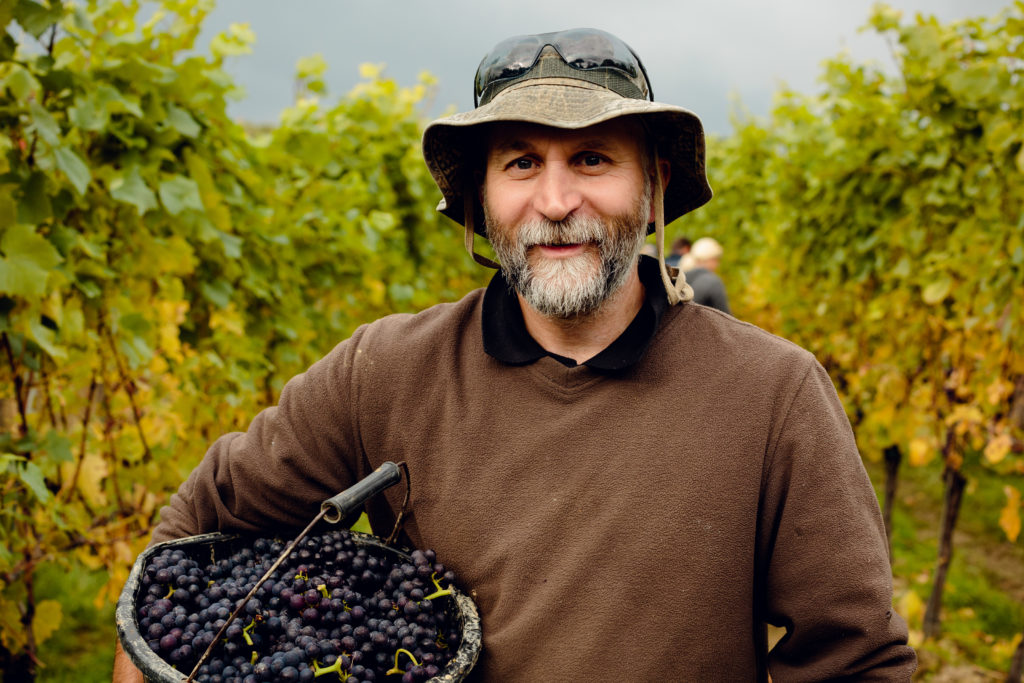
Gusbourne is also unique in their commitment to producing vintage wines, Charlie explains this is an unusual offering from an English wine maker. “We have a consistent style in the character of our wines, in tasting Blanc de Blancs for instance, you will always get that linear purity of a classic Blanc de Blancs and the natural minerality that comes from our location and our terroir. But in making exclusively vintage wines, we are always presenting the most truly authentic reflection of time and place. Each year will be distinctively different to the next, representing the climate and conditions that nature delivered that year.”
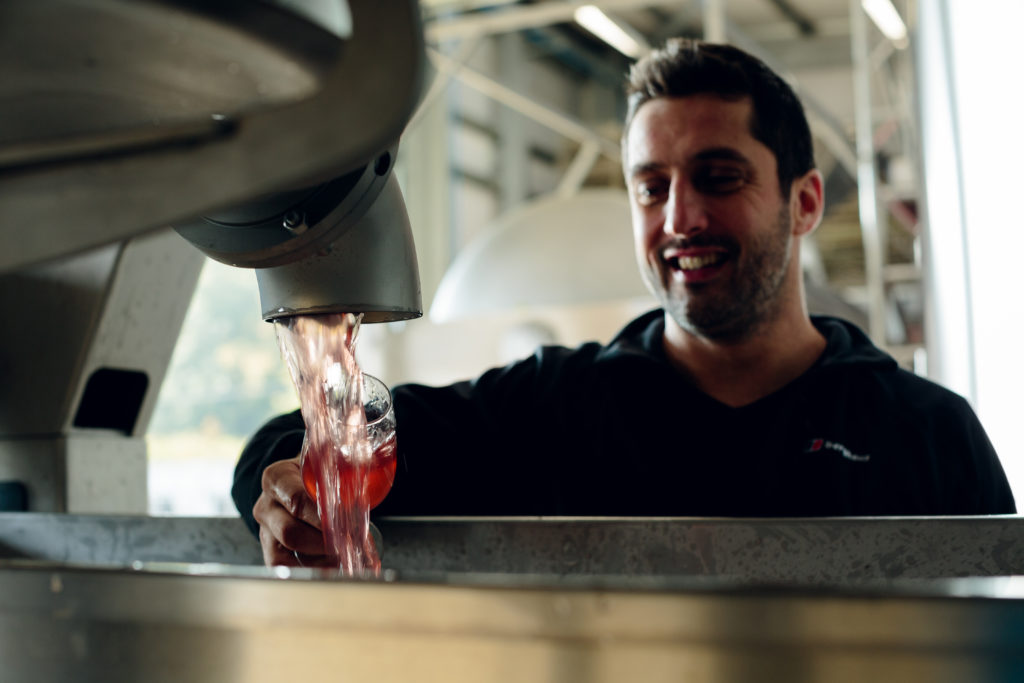
As with most pioneers, Gusbourne has become adept at weaving tradition and innovation together to ensure the spirit of adventure is also rooted in the slow, measured processes of the past. The attention to detail, from using only sustainable farming practices and organic fertilisers in the vineyards to blind tasting over 200 base wines to achieve the perfect blend vintage after vintage in the winery, they make sure nature is carefully nurtured and harnessed in every single bottle.
So, what better way to celebrate Britain’s most creative cultural scene than a testament to what makes it so unique? Each festival, like each vintage is about the sparkle created by the people, place and passion, beautifully distilled into a weekend of music, theatre, food and the perfect glass of English sparkling wine.
